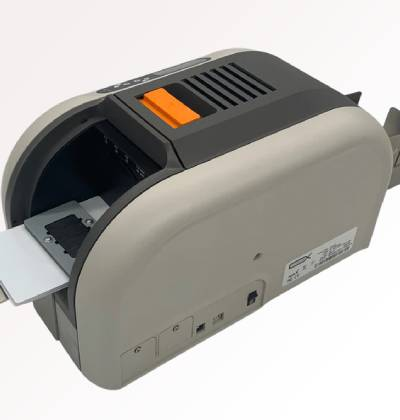Essential Guide for Non-Muslims Divorcing in the UAE

Strong 8k brings an ultra-HD IPTV experience to your living room and your pocket.
If you are an expat residing within the UAE, you may often wonder: “Will I have to go back to my country or to where I got married to get a divorce?” Thankfully for expatriates, UAE federal laws allow their divorce settlements to be done here in the country (UAE). The process, though, may differ slightly depending on one's religious background. This guide will take you through the relevant laws and legal procedures governing the process of divorce for non-Muslim expatriates in the UAE.
Applicable Laws
Non-Muslim expatriates in the UAE are regulated by the following federal laws and regulations:
1.Federal Decree-Law No. 41 of 2022 on Civil Personal Status Law for non-Muslims.
2.Cabinet Decision No. 122 of 2023 on the implementing regulations.
3.Federal Decree-Law 28 of 2005 regarding Personal Status Law.
The laws are applicable in every one of the seven emirates: Abu Dhabi, Dubai, Sharjah, Ajman, Umm Al Quwain, Ras Al Khaimah, and Fujairah. However, Abu Dhabi has certain special laws applicable in the jurisdiction:
1.Abu Dhabi Law No. 14 of 2021 as amended by Abu Dhabi Law No. 15 of 2021
2.Abu Dhabi Resolution No. 8 of 2022 concerning the Marriage and Civil Divorce Procedures in the emirate of Abu Dhabi
The above laws apply to Muslims and non-Muslim expatriates in Abu Dhabi. Any expatriate, whether resident or not, can obtain a divorce from the Abu Dhabi Civil Family Court if he/she works or was married there.
Types of Divorce Cases for Non-Muslims
There are three main types of divorce cases that non-Muslim expatriates can file in the UAE:
1.No-Fault Divorce
2.Mutual Divorce After Settlement Agreement
3.Litigated Divorce
1. No-Fault Divorce
No-fault divorce is the form of dissolution of marriage wherein marriage can be annulled without proving wrongdoing on the part of either party. Federal Decree-Law No. 41 of 2022 empowers an expat to raise a divorce suit based on Article 7 and Article 8.
Article 7: To grant the spouse the possibility of declaring that they wish to separate and not continue the marital relationship without giving reasons or assigning fault or guilt to the other party.
Article 8: Stipulates that divorce may be requested by either spouse without proof of damage and that it shall be awarded by judgment of the court, upon notice to the other party.
Mutual Divorce after Settlement Agreement
In the case of a mutual divorce, both spouses agree on filing a divorce settlement agreement before the competent court. The agreement may include the distribution of movable and immovable assets and will form the basis of the court judgment.
Litigated Divorce
In case both parties fail to decide upon the terms of the divorce, the judge must decide on the proceedings. This type of divorce might be more complicated and time-consuming compared to no-fault or mutual divorce.
How to File for Divorce
The process to file for divorce is slightly different according to the respective emirate.
Filing in Abu Dhabi
In Abu Dhabi, the Civil Family Court does not discriminate based on religion, which makes it possible for any expatriate to pursue divorce laws in a fair way. In Abu Dhabi Civil Family Court, most of the proceedings go through in a smooth and straightforward manner. The court follow a streamlined process so that the non-Muslims can benefit from the no-fault divorce laws and take divorce without giving any specific reason for the same.
Filing in Dubai
Whereas in Dubai, divorce cases among Muslims differ from that of non-Muslims. Thus, although the mechanics of the initial filing and the conciliation or mediation processes are similar, the basic differences arise when proceedings are litigated. In Dubai, a no-fault law is available for divorce proceedings of non-Muslims on the grounds of irretrievable breakdown of the marriage.
Timeline for Divorce Proceedings
The timeline of divorce proceedings is dependent on both the type of divorce and the other materials in the best manner.
No-Fault Divorce: If the husband and wife agree to divorce in Dubai and a settlement agreement is drafted, it can be done within six weeks through the reconciliation section of the Dubai court. If the case is opened fully in the court of litigation, it will take approximately four to six weeks before the judge pronounces the divorce.
Divorce by Mutual Agreement: This is much like a no-fault divorce; it can be pretty quick if the two parties agree and a settlement agreement has been established.
Litigated Divorce: This one takes rather a long time to conclude since there are court hearings that will be determined by a judge on the terms of the divorce.
Conclusion
The process of divorce within the UAE would appear to be very daunting for a non-Muslim expatriate, but it really is more manageable if one knows the laws and procedures. Whether one chooses a no-fault divorce, a mutual divorce after a settlement agreement, or a litigated divorce, being well-equipped and prepared for any of these processes is very important.
How HHS Lawyers Can Assist
At HHS Lawyers, we understand how hard it is for an expatriate living in the UAE to go through divorce procedures. HHS lawyers in Dubai, expert family attorneys, will walk you step-by-step through the process to ensure that your rights are very well safeguarded and things run super smoothly. Be it no-fault divorce filing or drafting settlement agreements, or litigation of your case, we are here to assist you. Please do not hesitate to contact us today for more information on how we can help you regarding divorce in the UAE.
Note: IndiBlogHub features both user-submitted and editorial content. We do not verify third-party contributions. Read our Disclaimer and Privacy Policyfor details.







